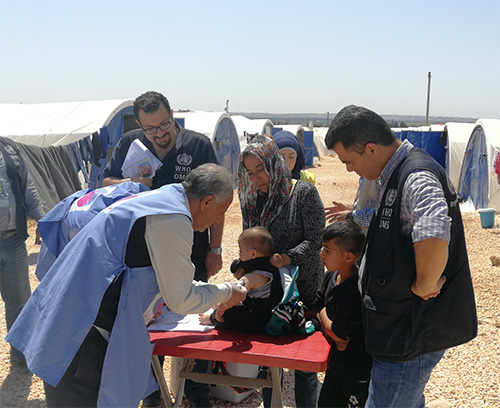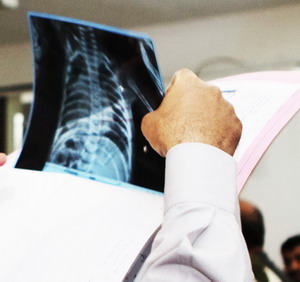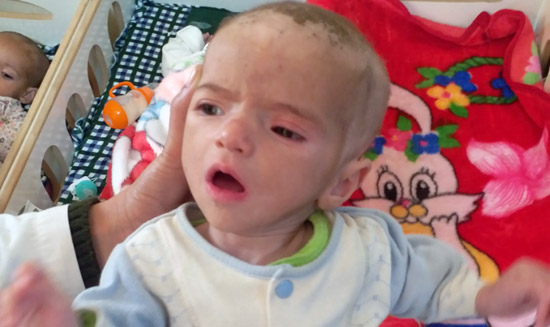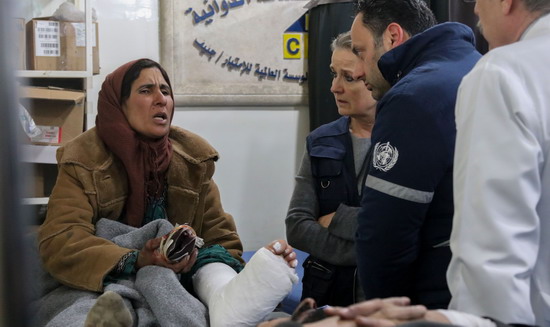 WHO-supported vaccination team is providing immunization services to children in Fafin camp for internally displaced people in rural Aleppo. Photo: WHO/Syria 201922 April 2019, Damascus, Syria ‒ Over the next 6 days, the World Health Organization (WHO), in cooperation with the Syrian Ministry of Health and UNICEF, will conduct a series of national immunization days to immunize children under the age of 5 against vaccine-preventable diseases, including tuberculosis, pertussis, diphtheria, polio, tetanus, hepatitis B, haemophilus influenza, measles, mumps and rubella.
WHO-supported vaccination team is providing immunization services to children in Fafin camp for internally displaced people in rural Aleppo. Photo: WHO/Syria 201922 April 2019, Damascus, Syria ‒ Over the next 6 days, the World Health Organization (WHO), in cooperation with the Syrian Ministry of Health and UNICEF, will conduct a series of national immunization days to immunize children under the age of 5 against vaccine-preventable diseases, including tuberculosis, pertussis, diphtheria, polio, tetanus, hepatitis B, haemophilus influenza, measles, mumps and rubella.
WHO aims to vaccinate approximately 2.8 million children under the age of 5 in 13 governorates in Syria. The campaign will focus on reaching almost 250 000 children who were not vaccinated during previous campaigns. Over 6800 vaccinators and 2487 mobile medical teams will be deployed to 900 public health centres and 1268 temporary vaccination posts. WHO is providing technical support to the Ministry of Health and covering the operational costs of the campaign.
Routine immunization is one of the building blocks of primary health care. It offers every child the chance of a healthy life from the outset. The campaign aims to raise awareness of the importance of vaccines and encourage parents to bring their children to be vaccinated.
‘’Immunization saves millions of lives and is widely recognized as one of the world’s most successful and cost-effective health interventions,” said Ms Elizabeth Hoff, WHO Representative in Syria. ‘’To give just one example, between 2000 and 2016, measles deaths dropped by 84% worldwide because of vaccination. WHO is committed to continuing its efforts to protect all children in Syria against vaccine-preventable life-threatening diseases,” Ms Hoff concluded.
The campaign coincides with World Immunization Week, which aims to promote the use of vaccines to protect people of all ages against disease. It is celebrated globally each year in the last week of April and the theme of this year’s campaign is “Protected Together: Vaccines Work!”







